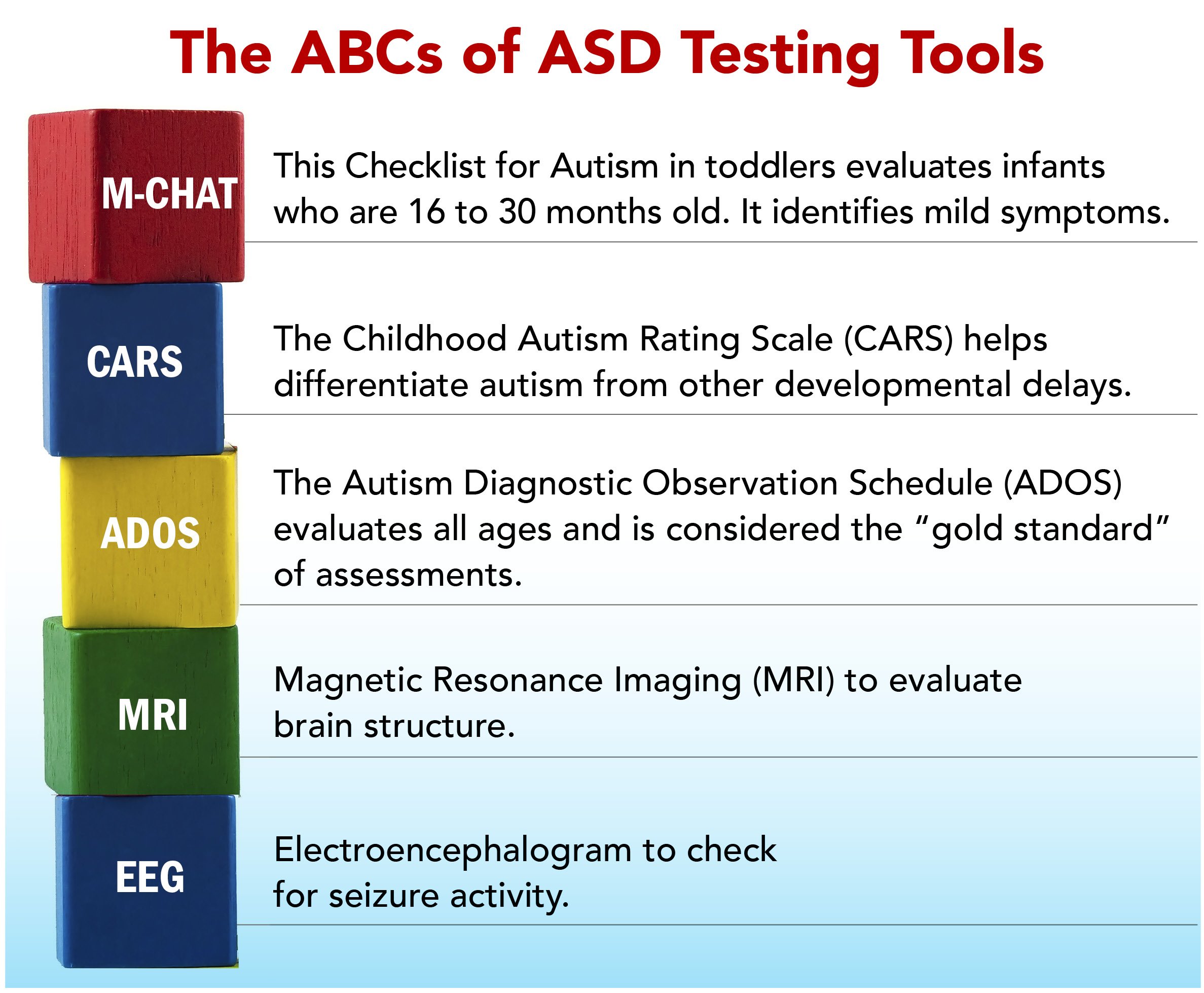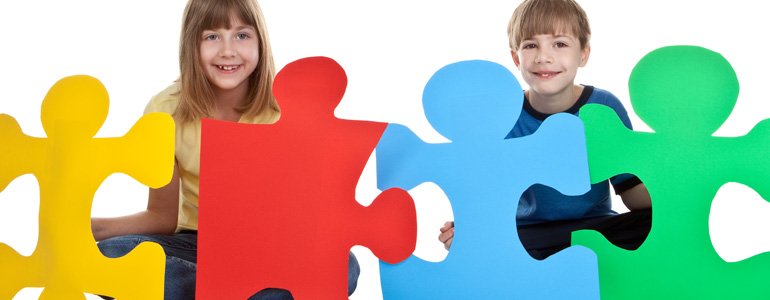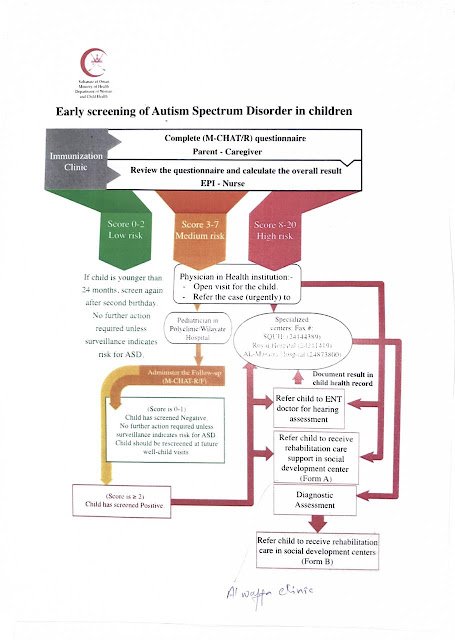Autism In Adults: Being Diagnosed Late In Life Is Challenging
With the adjustments in both the DSM-5 and its predecessor, the DSM-IV, to the definition of autism, more people are also being diagnosed with this developmental condition later in life.
Typically, people who are on the autism spectrum but do not receive a diagnosis until adulthood have milder symptoms. They may feel like they do not belong they may wonder why they struggle to maintain friendships or relationships or they may first receive a diagnosis of a co-occurring condition like depression or anxiety, which developed because of social isolation or communication struggles with others.
Testing children for signs of autism is a much more established practice, so many adults who are on the autism spectrum end up self-diagnosing themselves. Then, they seek help from a doctor or therapist who can provide an actual diagnosis. A medical diagnosis is a vital step to getting the right type of behavior therapy to understand and manage symptoms.
Screening And Diagnosis Of Autism Spectrum Disorder
Diagnosing autism spectrum disorder can be difficult because there is no medical test, like a blood test, to diagnose the disorder. Doctors look at the childs developmental history and behavior to make a diagnosis.
ASD can sometimes be detected at 18 months or younger. By age 2, a diagnosis by an experienced professional can be considered very reliable . However, many children do not receive a final diagnosis until much older. Some people are not diagnosed until they are adolescents or adults. This delay means that children with ASD might not get the early help they need.
Early signs of ASD can include, but are not limited to
- Avoiding eye contact,
- Having little interest in other children or caretakers,
- Limited display of language , or
- Getting upset by minor changes in routine.
CDCs Learn the Signs. Act Early. program provides free resources to help families monitor developmental milestones and recognize signs of developmental concerns, including ASD.
As children with ASD become adolescents and young adults, they might have difficulties developing and maintaining friendships, communicating with peers and adults, or understanding what behaviors are expected in school or on the job. They may also come to the attention of healthcare providers because they have co-occurring conditions such as attention-deficit/hyperactivity disorder, obsessive compulsive disorder, anxiety or depression, or conduct disorder.
Getting The Most Accurate Diagnosis
Early diagnosis is important to help families, caregivers, and schools understand the needs of a child with autism spectrum disorder. The child and adolescent psychologists and psychiatrists at the Child Study Center, part of Hassenfeld Childrens Hospital at NYU Langone, offer expert diagnostic evaluations for children as young as 12 months old through adulthood.
A comprehensive evaluation for autism spectrum disorder for young children includes several visits with our clinical and developmental child psychologists. These experts specialize in evaluating toddlers and young children suspected of having autism spectrum disorder or other communication disorders.
Evaluations are tailored to the needs of each family and include a thorough review of the childs behavior and development. Our experts gain information about the childs behavior and developmental milestones through direct observation, interviews with parents, speech and language evaluations, and cognitive assessments. The evaluation is play-based and tests the childs understanding of words, as well as social communication skills, such as imitation, reciprocity, and initiation.
Read Also: Autistic Life Expectancy
Diagnostic Assessment Criteria For Children With Autism
There are two sets of autism spectrum diagnostic criteria commonly used throughout Australia:
The main criteria used is the American Psychiatric Associations Diagnostic and Statistical Manual of Mental Disorders . The DSM-5 requires professionals to assess for the symptoms of autism and the impact these have on your childs life. Symptoms are identified in two domains social communication and social interaction, and restricted and repetitive behaviours. It requires consideration to co-occurring diagnosis. This information can help clinicians in their diagnostic decision-making and identification of support needs.
The World Health Organisations International Classification of Diseases . The ICD-11 requires clinicians to specify the presence and extent of intellectual and language impairment, along with the impact on numerous areas of functioning.
Learn About Autism Services Therapies And Supports

Early intervention is the best way to support autistic childrens learning, development and wellbeing. It can also help children develop the skills they need to take part in everyday activities. Sometimes children who get early intervention need less or no support as they get older.
You can get some therapies and supports before your child has a formal autism diagnosis. Heres how:
- Contact the National Disability Insurance Scheme on 1800 800 110. If your child is aged under seven years, your child can get support through the NDIS’s early childhood early intervention approach without a diagnosis.
- Look into programs and therapies that your child can start without an assessment and diagnosis for example, PlayConnect playgroups or Early Days workshops.
- Get your child started on therapies like speech pathology or occupational therapy while youre waiting for an assessment and diagnosis. Your GP will be able to tell you about Medicare rebates for these services.
- Put your childs name on waiting lists for some therapies and supports while you wait for your childs formal assessment.
If your child is over seven years old, theres a different pathway to get support under the NDIS. Your child will need a formal diagnosis before starting on this pathway.
Also Check: What Is The Life Expectancy Of People With Autism
Lawful Basis For Processing Your Data
How Is Asd Treated
One of the biggest challenges is finding the most effective form of treatment. The choices seem endless and differentiating one from another can be daunting. Parents often rely on therapists to direct and administer treatment, but many parents want to learn as much as possible so theyre in the best position to help their child. The most common treatments include applied behavioral analysis, relationship-building strategies, speech/language, and occupational therapy, counseling, and social skills groups.
To learn more, read our ASD Overview article.
Your privacy is important to us. All results are completely anonymous.
Read Also: Does Lionel Messi Have Autism
What Is Autism Spectrum Disorder
ASD is a condition that brings challenges in many areas of a childs development. Children with autism will develop differently in areas like speech, socializing, attention, and motor function.
As a parent, you may notice the signs of autism as young as six months of age. Some children do not exhibit signs of autism until later. Professional testing can start as early as 18 months.
How Early Can I Test My Child For Autism
The American Academy of Pediatrics recommends developmental and behavioral screening for all children during regular well-child visits at 9, 18, and 24 months. Screening specifically for autism begins at the 18-month visit. A diagnosis by a specialist can be considered very reliable once the child is 2 years of age.
Don’t Miss: What’s The Difference Between Autistic And Autism
What If I Disagree With The Pediatrician
Most of the time, parents and pediatricians are on the same page. But pediatricians see hundreds of children, and theyve seen a similar number of worried parents.
Minor developmental delays often resolve themselves, and some pediatricians are reluctant to raise the alarm until theres a major concern to address. If that describes your pediatrician, and youre still concerned about your childs development, you are absolutely within your rights to seek other opinions.
Parents see their children every day, while pediatricians may see your child only a few times a year. As a result, parents may be aware of issues that arent apparent in the doctors office.
Developmental Screening In Pediatric And Primary Care Practice
Integrating routine developmental screening into the practice setting can seem daunting. Following are suggestions for integrating screening services into primary care efficiently and at low cost, while ensuring thorough coordination of care.
An example of how developmental screening activities might flow in your clinic:
Involving Families in Screening
Research indicates that parents are reliable sources of information about their childrens development. Evidence-based screening tools that incorporate parent reports can facilitate structured communication between parents and providers to discover parent concerns, increase parent and provider observations of the childs development, and increase parent awareness. Such tools can also be time- and cost-efficient in clinical practice settings.2,3,4 A 1998 analysis found that, depending on the instrument, the time for administering a screening tool ranged from about 2 to 15 minutes, and the cost of materials and administration ranged from $1.19 to $4.60 per visit.5
Recommended Reading: Is Jerry Seinfeld Autistic
Repetitive Or Restrictive Behaviors
An autistic child who has adopted certain repetitive or restrictive behaviors may exhibit some of these signs:
- performs repetitive motions, such as flapping their hands, rocking back and forth, or spinning
- persistently or repeatedly lines up toys or other objects in an organized fashion
- gets upset or frustrated by small changes in their daily routine
- has to follow certain routines
- plays with toys the same way every time
- likes certain parts of objects
- has obsessive interests
Also Check: How To Approach Someone With Autism
Emotional And Behavioral Difficulties

- You have trouble regulating your emotions and your responses to them.
- Changes in routines and expectations cause outbursts or meltdowns.
- When something unexpected happens, you respond with an emotional meltdown.
- You get upset when your things are moved or rearranged.
- You have rigid routines, schedules, and daily patterns that must be maintained no matter what.
- You have repetitive behaviors and rituals.
- You make noises in places where quiet is expected.
Recommended Reading: Average Life Expectancy Of Someone With Autism
Current Diagnostic Tests For Autism In Adults
There are several tests that can help clinicians diagnose autism in adults.
- ADOS 2 Module 4: The Autism Diagnostic Observation Schedule, 2nd Edition, Module 4 is specifically used to diagnose autism in verbally fluent adults. There are several questions regarding common symptoms of autism, including those related to language and communication, reciprocal social interactions, and restricted or repetitive behaviors. The clinician will score each of these areas 1 to 3, and then provide a diagnosis based on the total score.
- ADI-R: This is a survey typically used to diagnose children, based on interviewing their parents. However, some clinicians may use it to diagnose adults with autism, using the same interview questions but instead asking about their childhood experiences.
- 3Di Adult:The Developmental, Dimensional, and Diagnostic Interview Adult Version was developed specifically to help clinicians understand signs of autism in their adult clients. It has shown higher sensitivity and accuracy than other tests.
- AFQ: The Actions and Feelings Questionnaire focuses on differences in motor cognition. This involves how humans process and understand their physical movements, which can help adults relate to the world. This includes social processing, which can help identify adults who are on the autism spectrum.
- RAADS-14: The Ritvo Autism and Asperger Diagnostic Scale-Revised is an 80-question survey to detect autism. The RAADS-14 is the streamlined 14-question version.
Autism Screening Test For Older Children
Sometimes children are not diagnosed with ASD early on due to many factors varying from socioeconomic backgrounds to access to specialized healthcare services.
That is why some children with ASD are not being diagnosed until later in their life.
However, there are ways to screen older children to see if they are at risk of having ASD. Many online tests and resources are available to give you an idea if your child has autism.
Autism Treatment Evaluation Checklist is one of the tests that can be taken. The rest of the process is similar to screening in other age groups.
It is important to remember that screening tools are not for diagnosis. They are only used to guide the individuals and inform them about the potential risk for autism.
After you have taken the test, consider consulting with your primary healthcare provider so that they can refer you to a specialist for final diagnosis.
Also Check: Life Expectancy With Autism
Build Your Support Network
A supportive network of family and friends can help you make sense of information and support you in practical ways.
- Talk to friends and family you trust about your concerns about your child.
- Meet and talk to other parents of autistic children by joining forums or parent groups. Your state autism association or the NDIA can help you find local groups.
- If you need a break, ask family or friends to look after your child occasionally or for other kinds of practical help, like cooking an occasional meal. You might find it hard to ask for or accept help, but people who care about you and your child will want to support you.
When you look after yourself, youre better able to navigate the challenges of family life with an autistic child. And when youre healthy and well, it helps your child grow and thrive.
Articles On Autism Diagnosis
Autism spectrum disorder is usually diagnosed in young children. But what if you think you may be on the spectrum, and it never got diagnosed?
Parents of very young children are on the lookout for classic symptoms like lack of contact, repetitive movements, and sensory issues. And all kids are screened for these signs at their 18- and 24-month pediatrician well-child visits, so most cases of autism spectrum disorder are diagnosed by age 2.
That wasnât always the case. Not too long ago, some kids who would be diagnosed with autism spectrum disorder today might have been labeled as âdifficultâ or âlearning disabled,â and may not have gotten the help they needed.
Now, those children are adults and they or their family members may wonder if they might have ASD.
Don’t Miss: Visual Schedule Builder Autism
Your Form Has Been Submitted
Hi %NAME%,
Thank you for completing the Quiz on behalf of your child. Your child has received an Autism Quotient score of %SCORE% which translates to %SCOREPERCENT% Percent.
Please Note: Taking this test is not a substitute for professional opinion.
Based on the responses you have entered, our prediction is:
%DESIGNATION%
%DESIGNATIONMSG%
What Other Conditions Can Be Mistaken For Aspergers
Obsessive compulsive disorder , attention deficit hyperactivity disorder , and social anxiety disorder all can look similar to Aspergers, says Eric Hollander, MD, director of the Autism and Obsessive-Compulsive Spectrum Program in the Department of Psychiatry and Behavioral Sciences at Montefiore Medical Center in New York City.
For example, a child with ADHD, due to distractibility, may display inconsistent eye contact and not be entirely responsive to directives. So in that sense, a child with ADHD may appear similar to a child with Aspergers but the underlying reasons for the issues are far different, says John Carosso, PsyD, a child psychologist and certified school psychologist at Community Psychiatric Centers at the Autism Center of Pittsburgh, Pennsylvania. So Aspergers can be a challenging diagnosis to make.
Also Check: Does Nick Eh 30 Have Autism
What Is The Difference Between Autism And Autism Spectrum Disorder
The term autism was changed to autism spectrum disorder in 2013 by the American Psychiatric Association. ASD is now an umbrella term that covers the following conditions:
- Autistic disorder.
- Pervasive developmental disorder not otherwise specified .
- Asperger syndrome.
People with ASD have trouble with social interactions and with interpreting and using non-verbal and verbal communication in social contexts. Individuals with ASD may also have the following difficulties:
- Inflexible interests.
- Insistence on sameness in environment or routine.
- Repetitive motor and sensory behaviors, like flapping arms or rocking.
- Increased or decreased reactions to sensory stimuli.
How well someone with ASD can function in day-to-day life depends on the severity of their symptoms. Given that autism varies widely in severity and everyday impairment, the symptoms of some people arent always easily recognized.
Have An Autism Assessment

An autism assessment is where a team of autism specialists check if you or your child are autistic.
An assessment team may:
- ask about any problems you or your child are having
- watch how you or your child interact with other people
- speak to people who know you or your child well, such as family, friends, your GP or your childs teachers
At the end of the assessment, youll be given a report saying if you or your child are autistic.
Dont Miss: What Causes Autism Exploring The Environmental Contribution
You May Like: Can A Child Outgrow Autism
Who Will Be Involved In The Assessment
It will depend on where you go to get an assessment done as to who, and how many professionals will be involved in doing to autism assessment.
If you go to a private professional, the assessment will generally be completed by one professional, such as a Speech Pathologist or Psychologist. In some states, you will be required to see two different types of professionals to complete an autism assessment, before a diagnosis of autism can be made. It is best to contact your local autism support service provider to find out what is required in your state or territory. However, if you go for an assessment by a government funded organisation, a range of professionals will generally be involved in any diagnostic assessment.